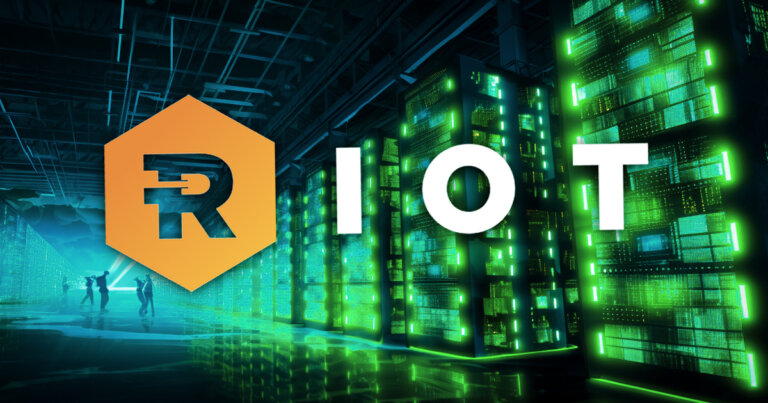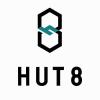 Riot leverages Texas power strategy to fund operations as BTC balance increases
Riot leverages Texas power strategy to fund operations as BTC balance increases Riot leverages Texas power strategy to fund operations as BTC balance increases
June 2023 performance report: Riot produces 460 BTC, executes power strategy and plans hash rate boost

Cover art/illustration via CryptoSlate. Image includes combined content which may include AI-generated content.
Riot Platforms, Inc. recently reported its June 2023 Bitcoin mining performance, revealing that it produced 460 Bitcoin while executing an effective power strategy.
The mining firm produced 40% fewer Bitcoin in June, mining just 460 BTC compared to 676 BTC in May.
| Metric | June 2023 | May 2023 | June 2022 | Month/Month | Year/Year |
|---|---|---|---|---|---|
| Bitcoin Produced | 460 | 676 | 421 | -32% | 9% |
| Average Bitcoin Produced per Day | 15.3 | 21.8 | 14.0 | -30% | 9% |
| Bitcoin Held | 7,250 | 7,190 | 6,654 | 1% | 9% |
| Bitcoin Sold | 400 | 600 | 300 | -33% | 33% |
| Bitcoin Sales – Net Proceeds | $10.6 million | $16.5 million | $6.2 million | -36% | 71% |
| Average Net Price per Bitcoin Sold | $26,456 | $27,568 | $20,627 | -4% | 28% |
| Deployed Hash Rate | 10.7 EH/s | 10.5 EH/s | 4.4 EH/s | 2% | 143% |
| Deployed Miners | 95,904 | 94,176 | 42,455 | 2% | 126% |
| Power Sales | $8.4 million | $0.5 million | $1.9 million | 1,452% | 338% |
| Demand Response Revenue | $1.6 million | $2.3 million | $0.7 million | -29% | 137% |
Source: Riot
Despite the drop in sales, Riot was able to leverage its power strategy to generate substantial revenue equivalent to $10 million in revenue. As a result, the combined power sales and demand response revenue equated to an equivalent of a “361 BTC” increase based on the average price of Bitcoin during the month.
Jason Les, CEO of Riot, commented,
“June was a momentous month for Riot, as the results from our mining operations, power strategy and growth plans have all come together.
We announced an initial order of 33,280 MicroBT miners for our Corsicana Facility, which is expected to add 7.6 EH/s to our self-mining fleet and also provides optionality for future orders at the same terms.”
The additional MicroBT miners would increase Riot’s hash rate by 71%, given the current reported figure of 10.7 EH/s.
Bitcoin miners are selling BTC.
The news comes as other U.S. miners looked to capitalize on BTC’s recent price surge to secure profits. In June, BTC mostly traded above $25,000, peaking at $30,750.
According to Glassnode data analyzed by CryptoSlate, Bitcoin miners sold a notable amount of their mined Bitcoin in June to fund their operations. Data shows that Bitcoin miners’ exchange flow peaked at 4,710 BTC on June 20, marking the highest rate in the past five years.
| MINER | BITCOIN PRODUCED | BITCOIN SOLD | PERCENTAGE SOLD | BTC HOLDINGS | TOTAL HOLDINGS SOLD |
|---|---|---|---|---|---|
| Riot | 460 BTC | 400 BTC | 87% | 7,250 BTC | 5.52% |
| Marathon Digital | 979 BTC | 700 BTC | 71.5% | 12,538 BTC | 5.58% |
| Hut 8 | 70 BTC | 217 BTC | 310%* | 9,136 BTC | 2.38% |
| Cleanspark | 491 BTC | 413 BTC | 84% | 529 BTC | 78.07% |
June BTC Miner Activity
*(Based on June Production)
Comparatively, Riot sold fewer Bitcoins monthly as the company reported a sale of 400 Bitcoins in June 2023, a decrease of 33% from May 2023.
Riot’s power strategy
However, Riot’s unique power strategy allowed the company to maintain a “competitive edge” and contribute meaningfully to the broader energy grid during Texas’s June heatwave without relying solely on Bitcoin sales for revenue. Les explained,
“As temperatures in Texas reached near record levels during the month and power demand was high, we made dynamic decisions on our power usage based on market signals.
Through our participation in various market programs within ERCOT, the Company generated $8.4 million in power sales and $1.6 million in demand response revenue.”
According to Riot, the power strategy involves participation in ERCOT’s ancillary services and the Four Coincident Peak (4CP) program. The company effectively uses these services to balance electricity supply and demand, even during peak periods.
Riot then sells access to electrical load to ERCOT and receives compensation regardless of whether ERCOT requires a power down. Through the 4CP program, Riot voluntarily reduces power usage during peak periods and, in return, receives credits for future transmission costs.
The flexibility of its long-term Power Purchase Agreement allows Riot to sell power back to the market when it’s more profitable than mining Bitcoin.





















































































































